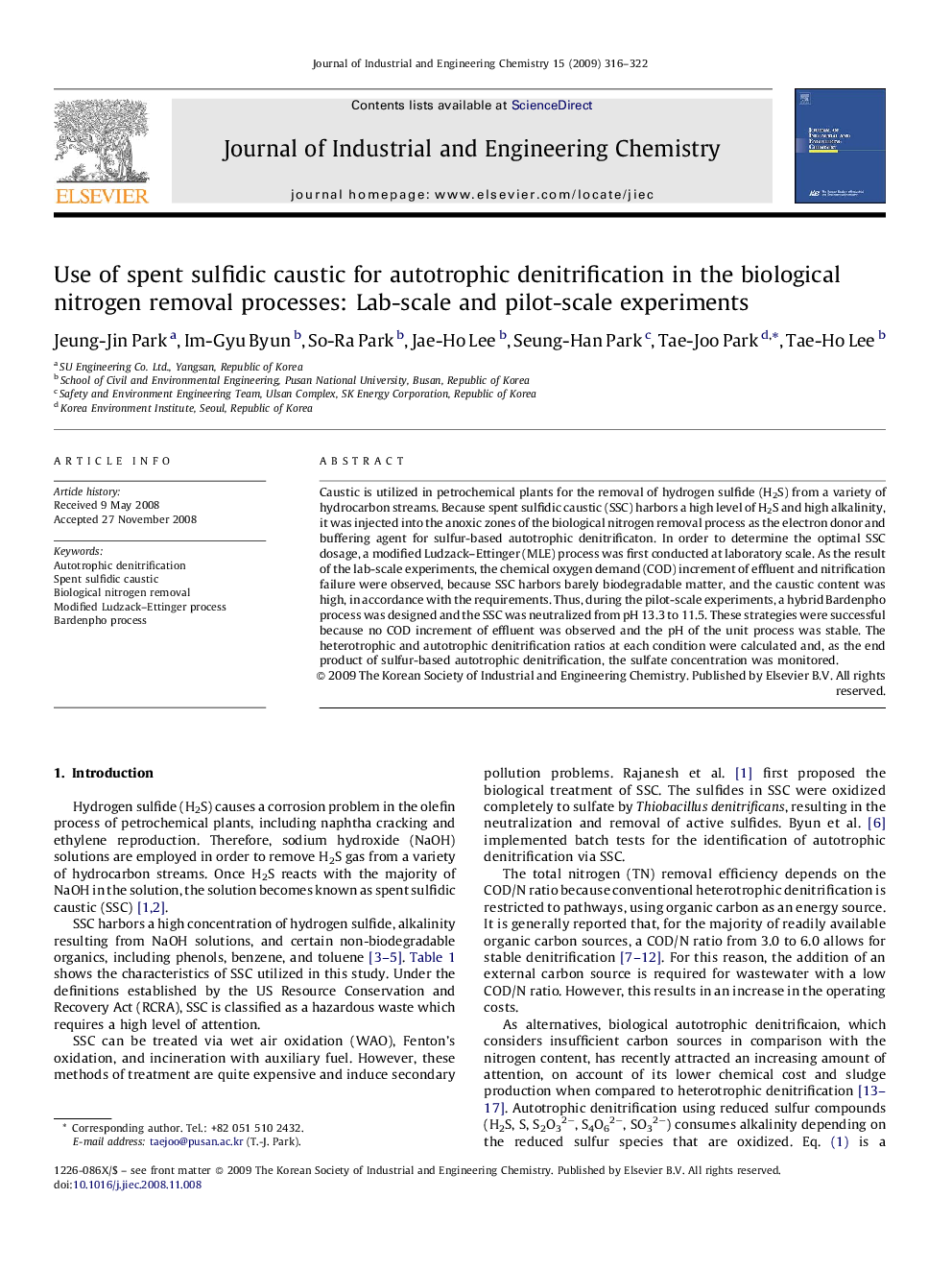| کد مقاله | کد نشریه | سال انتشار | مقاله انگلیسی | نسخه تمام متن |
|---|---|---|---|---|
| 228655 | 464846 | 2009 | 7 صفحه PDF | دانلود رایگان |

Caustic is utilized in petrochemical plants for the removal of hydrogen sulfide (H2S) from a variety of hydrocarbon streams. Because spent sulfidic caustic (SSC) harbors a high level of H2S and high alkalinity, it was injected into the anoxic zones of the biological nitrogen removal process as the electron donor and buffering agent for sulfur-based autotrophic denitrificaton. In order to determine the optimal SSC dosage, a modified Ludzack–Ettinger (MLE) process was first conducted at laboratory scale. As the result of the lab-scale experiments, the chemical oxygen demand (COD) increment of effluent and nitrification failure were observed, because SSC harbors barely biodegradable matter, and the caustic content was high, in accordance with the requirements. Thus, during the pilot-scale experiments, a hybrid Bardenpho process was designed and the SSC was neutralized from pH 13.3 to 11.5. These strategies were successful because no COD increment of effluent was observed and the pH of the unit process was stable. The heterotrophic and autotrophic denitrification ratios at each condition were calculated and, as the end product of sulfur-based autotrophic denitrification, the sulfate concentration was monitored.
Journal: Journal of Industrial and Engineering Chemistry - Volume 15, Issue 3, 25 May 2009, Pages 316–322